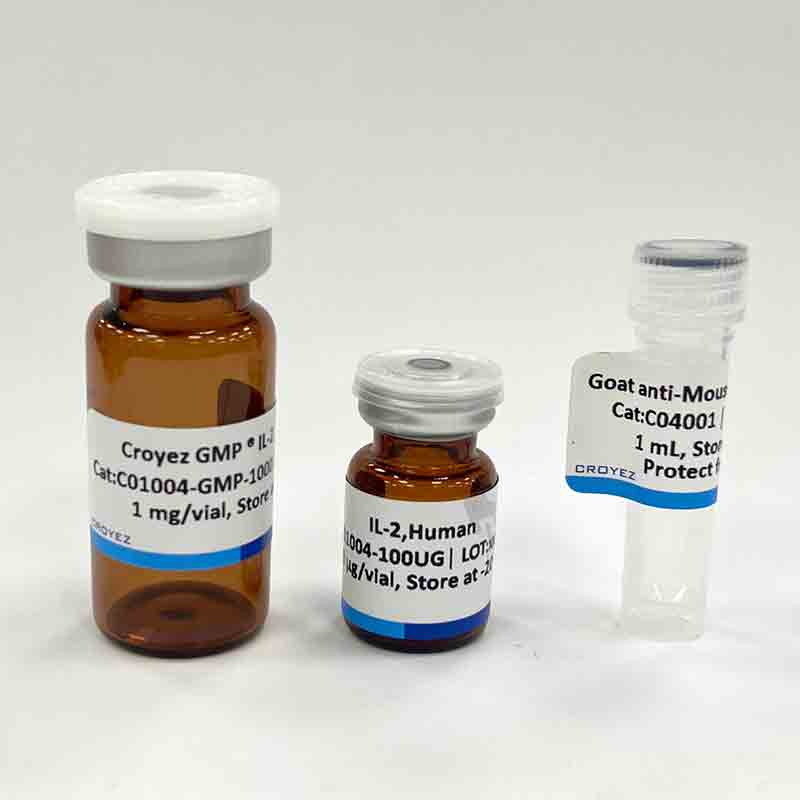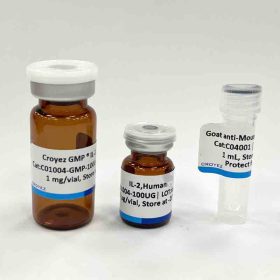G-CSF is a hematopoietic growth factor. It can activate the progress that committed progenitor cells develop to neutrophils and enhance the functional activities of the mature end-cell. It is secreted in response to specific stimulation by a variety of cells, including bone marrow stroma, macrophages, endothelial cells and fibroblasts. In clinical treatment, G-CSF is used to facilitate hematopoietic recovery after bone marrow transplantation.
Sequence:
VPLVTVSALPPSLPLPRSFLLKSLEQVRKIQASGSVLLEQLCATYKLCHPEELVLLGHSLGIPKASLSGCSSQALQQTQCLSQLHSGLCLYQGLLQ
ALSGISPALAPTLDLLQLDVANFATTIWQQMENLGVAPTVQPTQSAMPAFTSAFQRRAGGVLAISYLQGFLETARLALHHLA with polyhistidine tag at the N-terminus
Source:
Escherichia coli
Endotoxin Test:
<0.1 EU per 1 μg of the protein by the LAL method.
Activity:
Measure by its ability to induce proliferation in NFS-60 cells. The ED50 for this effect is <50 pg/mL. The specific activity of recombinant mouse G-CSF is > 2 x 107 IU/mg.
Purity:
>98% as determined by SDS-PAGE. Ni-NTA chromatography
Formulation:
The protein was lyophilized from a solution containing 1X PBS, pH 7.4.
Reconstitution:
It is recommended to reconstitute the lyophilized protein in sterile H2O to a concentration not less than 100 μg/mL and incubate the stock solution for at least 20 min to ensure sufficient re-dissolved.
Storage:
Lyophilized protein should be stored at -20°C. Upon reconstitution, protein aliquots should be stored at -20°C or -80°C.
Note:
Please use within one month after protein reconstitution.





